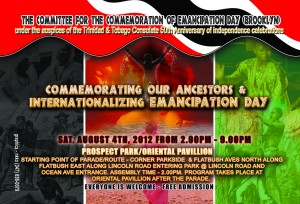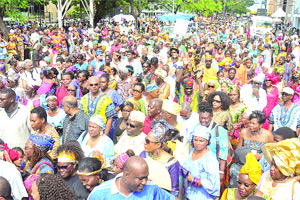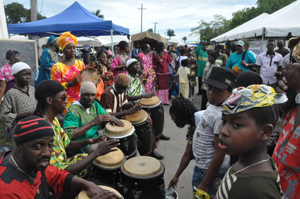Ciego de Avila, Cuba, Aug 1 (Prensa Latina) The immigrants and descendants of the Anglo-speaking islands, residing in this central province of Cuba, are celebrating the day of emancipation from the slavery of the English colonies.
Since early hours the sounds of drums, bongoes and congas united to the rhythm of the calypso have been greeting those arriving in the community called Jamaica Town, in the municipality of Baraguá.
It is one of the most populous neighbourhoods in the country, where immigrants cohabit and are descendants of almost all the English-speaking islands of the region.
The musical-dance group La Cinta is the center of these celebrations that developed starting in 1917 and have become the most representative of Caribbean culture with roots in Cuba.
Founded on September 20, 1975, the group presents dances and songs characteristic of Jamaican folklore, fused with Cuban rhythms, as in the introduction to the famous song Guantanamera.
The traditional show will begin with games like cricket, tug of war, the stick and the Mock Man or Muñecón.
The celebration began with a parade, headed by the Donkey, a dancer dressed up as a burro, giving a distinctive touch to these Caribbean dances.
The narrow streets of the town filled with people who also make the festivity theirs.
During the day they eat typical foods, elaborated by the members of the community, ranging from the bread with lemonade, the wine of the soril flower, rice with coconut, fish with sauce, flour with okra, Black Cake and coconut bread.
The parties of August 1 have become one of the most genuine representations in the culture, customs and language of the Jamaican community residing in Cuba.
In 1833, slavery was abolished in all the colonies of the United Kingdom, for what is now a day of joy for the community of immigrants of the English-speaking Caribbean islands in Cuba.
For original post: Prensa Latina News Agency – Cuba: Celebration of Anglo Caribbean Emancipation Day.



